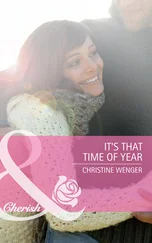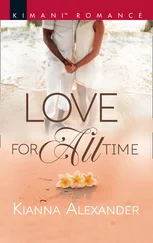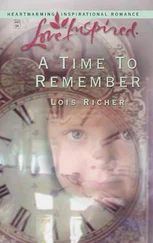Alexander Todd - A Time to Remember
Здесь есть возможность читать онлайн «Alexander Todd - A Time to Remember» весь текст электронной книги совершенно бесплатно (целиком полную версию без сокращений). В некоторых случаях можно слушать аудио, скачать через торрент в формате fb2 и присутствует краткое содержание. Город: Cambridge, Год выпуска: 1983, ISBN: 1983, Издательство: Cambridge University Press, Жанр: Химия, Биографии и Мемуары, на английском языке. Описание произведения, (предисловие) а так же отзывы посетителей доступны на портале библиотеки ЛибКат.
- Название:A Time to Remember
- Автор:
- Издательство:Cambridge University Press
- Жанр:
- Год:1983
- Город:Cambridge
- ISBN:0 521 25593 7
- Рейтинг книги:3 / 5. Голосов: 1
-
Избранное:Добавить в избранное
- Отзывы:
-
Ваша оценка:
- 60
- 1
- 2
- 3
- 4
- 5
A Time to Remember: краткое содержание, описание и аннотация
Предлагаем к чтению аннотацию, описание, краткое содержание или предисловие (зависит от того, что написал сам автор книги «A Time to Remember»). Если вы не нашли необходимую информацию о книге — напишите в комментариях, мы постараемся отыскать её.
A Time to Remember — читать онлайн бесплатно полную книгу (весь текст) целиком
Ниже представлен текст книги, разбитый по страницам. Система сохранения места последней прочитанной страницы, позволяет с удобством читать онлайн бесплатно книгу «A Time to Remember», без необходимости каждый раз заново искать на чём Вы остановились. Поставьте закладку, и сможете в любой момент перейти на страницу, на которой закончили чтение.
Интервал:
Закладка:
My wife and I decided, with the Woodwards, that the opportunity for a few extra days' holiday should not be missed, so all four travelled to Egypt, spent a few days in Cairo, and visited Luxor and the tombs in the Valley of the Kings, before meeting Prelog at Cairo airport and flying on to Bombay, where we were royally entertained by the Ciba company. After the opening ceremony at Goregaon, Alison and I, with Bob Woodward and Vlado Prelog, went up to Poona at Venkataraman's invitation to see the National Chemical Laboratory, of which he was rightly proud, and spend the night with him and his wife in their official residence. The visit was quite hilarious, largely because something went badly wrong at the Poona power station so that all electricity supply failed at frequent intervals. This made Vlado's lecture an uproarious event, the place being plunged in darkness several times while he was speaking. I remember, too, retiring to Bob's quarters for a quiet drink at the end of the evening party, only to have the lights fail after a few minutes. Venkataraman, like the good host he was, was rushing around the guest rooms with candles. What he thought on finding us sitting peacefully having a nightcap in total darkness I don't know, but, in the flickering light of the candle he was carrying, he certainly looked rather surprised! We returned safely to Bombay, and wound up the ceremonies there with a big party at a restaurant on the coast a few miles north of Bombay. The highlight was a display of South Indian dancing by Govindachari's daughter Anurada; although only eleven years of age, she was already well known in the world of the dance but remained a rather shy, unspoilt little girl. It was on this occasion, incidentally, that I accepted an invitation from Dr. Kappeli (chairman of Ciba Ltd) to become a Trustee of the Ciba Foundation. From Bombay, the entire party then went off on a beautifully arranged tour to Jaipur, Udaipur, Delhi, Agra and Fatehpur Sikri before returning home.
During that same year I made two visits to the United States - firstly to Harvard for Commencement, where I received an honorary degree, and had the interesting experience of visiting a small Liberal Arts College (Colby College in Maine) to see Bob Woodward receive a degree there. Colby was a curious, rather gentlemanly place, evidently patronised by people well provided with the world's goods. I believe there are many such colleges with good academic standards in the United States, although I have only seen one other like it, namely, Widener College, near Philadelphia, where I received a degree much later, in 1976. I have not seen any equivalent institutions in other countries I have visited. My second visit was in October, to attend the celebrations in Washington to mark the Centenary of the National Academy of Sciences, of which I had been a Foreign Associate for a number of years. The Washington celebrations gave me the opportunity to meet, if rather briefly, the young President of the United States, J. F. Kennedy, who was well known to several of my American friends; I found him most impressive, and very different from most of the American politicians I had met. Following the National Academy meeting, I went on to Yale where I delivered, rather belatedly, the Silliman Lectures I had been invited to give some time before. I was well looked after by Joe Fruton, Professor of Biochemistry at Yale, who had doubtless been responsible for my being made a Silliman Lecturer. I ought, however, to feel rather ashamed because, although I delivered the lectures (on nucleic acid chemistry) I never got around to writing them up for publication in book form; I fear I have always avoided tasks like that!
Meanwhile, I had taken on a new job. In January 1963 I was approached by the Vice-Master of Christ's College, who told me that it was the unanimous wish of the Fellows that I be invited to accept the Mastership, which would be vacant in mid-July when the then Master, Professor B. W. Downs, would retire at the statutory age of seventy. At various times before then I had been approached to take vice-chancellorships of various universities and headships of colleges, but had uniformly refused. Now, however, things seemed rather different. For one thing, it was my own college and I knew it and its ways so well that it would not be a great strain to take it over. Again, I had now achieved much of what I could expect to achieve in research, and felt I should now concentrate more on providing the opportunities for younger colleagues to realise their potential. Finally, the Master's Lodge was a fine old house - possibly a bit large, but nevertheless most attractive as a place in which to live. So I accepted; I assumed office on 11 July 1963, but, as fairly extensive modifications had to be done to the Lodge, we did not actually move into it until April 1964. I have always believed that the real reason for this long delay was that the builders' men were keen to keep a nice inside job like this going until the end of winter, remembering the savage cold of the preceding year. I thoroughly enjoyed my fifteen years as Master of Christ's; living with successive generations of undergraduates in college is a most rewarding experience, and leads to the formation of many friendships. I was also very lucky in the key appointments I made. Within a year of my appointment, the college Bursar left to take up a Professorship at the London School of Economics. He, like most college Bursars in Cambridge, was only occupied part-time with his bursarial duties, and, although this was traditional in all but the largest colleges, it seemed to me that a full-time Bursar with no other duties would be desirable, even in a medium-sized college like Christ's. Moreover, it was clear to me that a full-time professional bursar would save the Master a lot of work and trouble. Accordingly, I persuaded the Deputy Treasurer of the University, C. K. Phillips, to resign and become Bursar of Christ's, guaranteeing him terms as good as the university could offer. I was, however, left with another problem. A year or two before I became Master there had been a rather unsavoury row in the college which led to the Senior Tutor giving up his position. His resignation was a serious blow to the college, and I was faced with the problem of working with part-time, reluctant, Senior Tutors with no real policy and no continuity - a disastrous situation for a college to be in. I had always believed that the Senior Tutor should be a full-time servant of the college; the position is too important for it to be in the hands of people who cannot devote their whole time to it. Fortunately I had a great stroke of luck. In 1967, the Commonwealth Fund Trustees would seem to have had a brainstorm, for they let it be known that they were going to cut back or eliminate their Fellowship scheme in Europe and devote their funds to medical research. The Fund had in London a brilliant secretary, S. Gorley Putt, with vast experience in interviewing and selecting young men for Fellowships. Gorley was an old Christ's man and a bachelor, and so had everything I could ask for. I was pretty sure that the Commonwealth Trustees would soon come back to sanity, so, without further ado (or even consulting the College Governing Body), I pounced on Gorley, who to my great joy accepted the post of Senior Tutor in charge of admissions, a position which he held with distinction throughout the remainder of my Mastership. With Phillips and Putt, running Christ's was an easy task, and I believe the College thrived as a result.
My son Sandy completed his Oxford D.Phil. in organic chemistry in 1964 and went to Stanford to do two years of postdoctoral work with Gene van Tamelen; at the same time his contemporary, friend, and by then brother-in-law, Philip Brown (having married my elder daughter Helen) also went as a postdoctoral to Melvin Calvin at nearby Berkeley. Helen, who had just given birth to her first child (actually on my birthday), stayed behind, while Philip went on ahead, and my wife accompanied them to Berkeley in December. There I joined her, after attending a meeting of the IUPAC Executive Committee in Austin (Texas) in December and flying from there to San Francisco. My main recollection of that, my first, visit to Texas, was of a rather aggressively state-proud people, who appeared to tolerate without complaint the most absurd liquor laws I have ever come across. You could buy any liquor you wished in special liquor stores, but apparently could not buy it for consumption on the premises. It was, nevertheless, quite legal to take your own liquor to a restaurant, and there consume it. My first experience of this remarkable arrangement was on Dallas airport; having a bit of time to spare waiting for a connection to Austin, I went into a rather garish pseudo-Hawaiian cocktail lounge, looked at the impressive array of cocktails on the menu, summoned a scantily clad waitress, and ordered one.' Where is your bottle?' she asked. I confessed that I hadn't got one, whereupon I was informed that she could mix a cocktail for me, but only if I could provide the alcohol! One got used to surprises in a state where the Attorney General was always referred to as General Carr, without his having, as far as I know, any military connection whatever.
Читать дальшеИнтервал:
Закладка:
Похожие книги на «A Time to Remember»
Представляем Вашему вниманию похожие книги на «A Time to Remember» списком для выбора. Мы отобрали схожую по названию и смыслу литературу в надежде предоставить читателям больше вариантов отыскать новые, интересные, ещё непрочитанные произведения.
Обсуждение, отзывы о книге «A Time to Remember» и просто собственные мнения читателей. Оставьте ваши комментарии, напишите, что Вы думаете о произведении, его смысле или главных героях. Укажите что конкретно понравилось, а что нет, и почему Вы так считаете.










